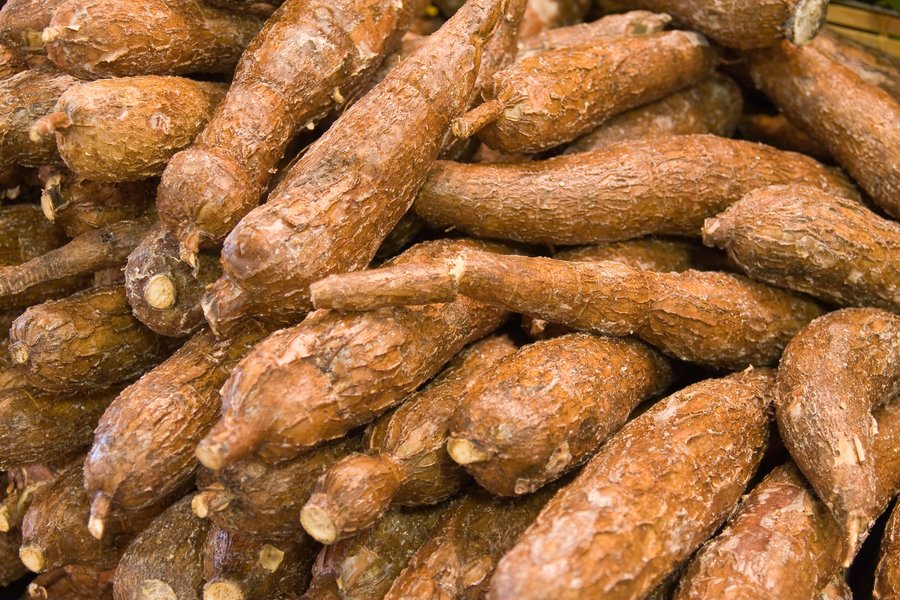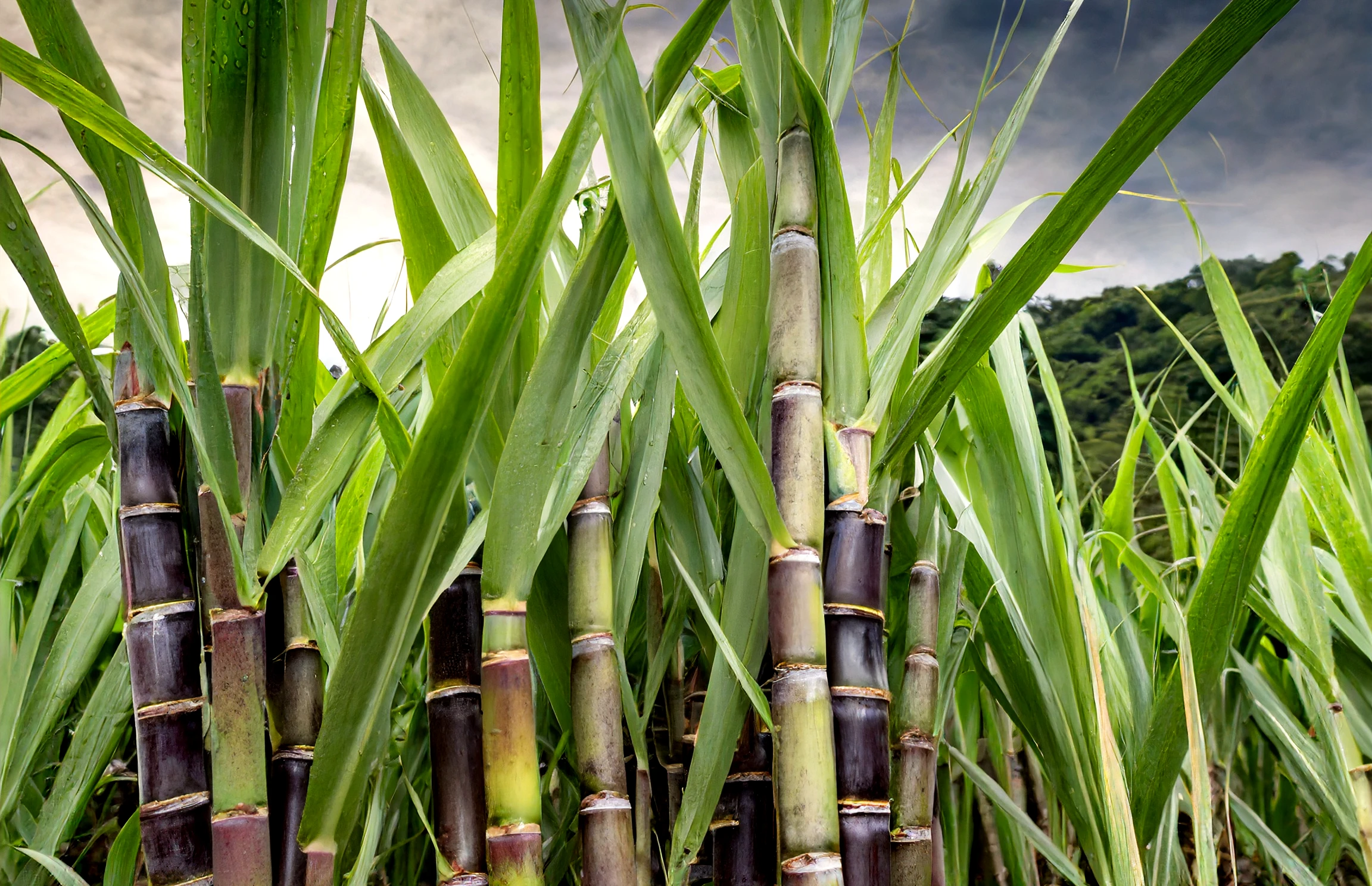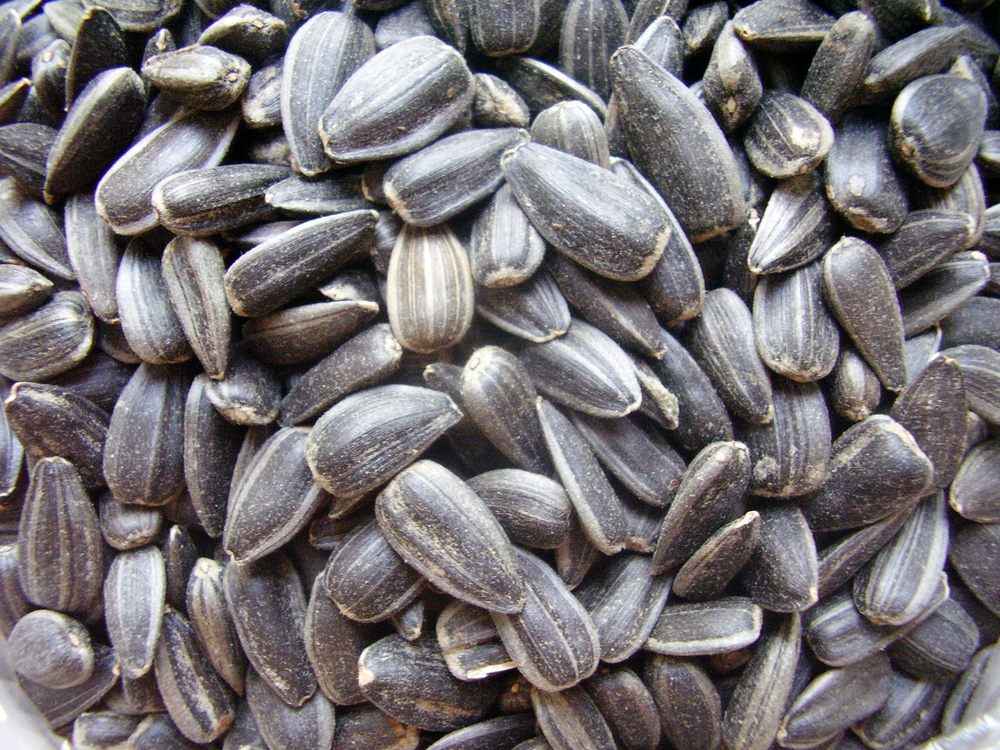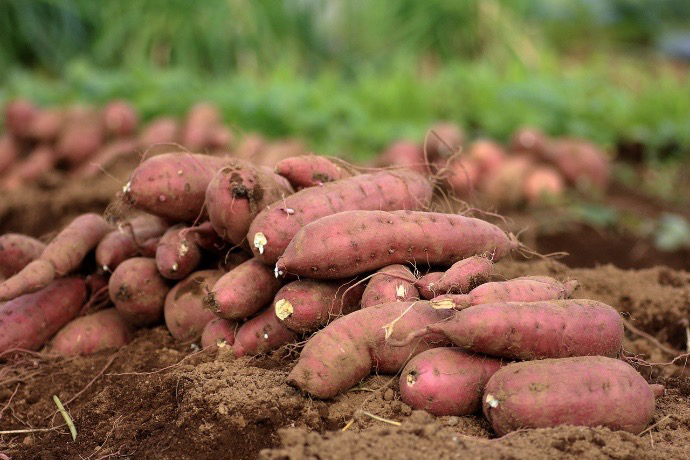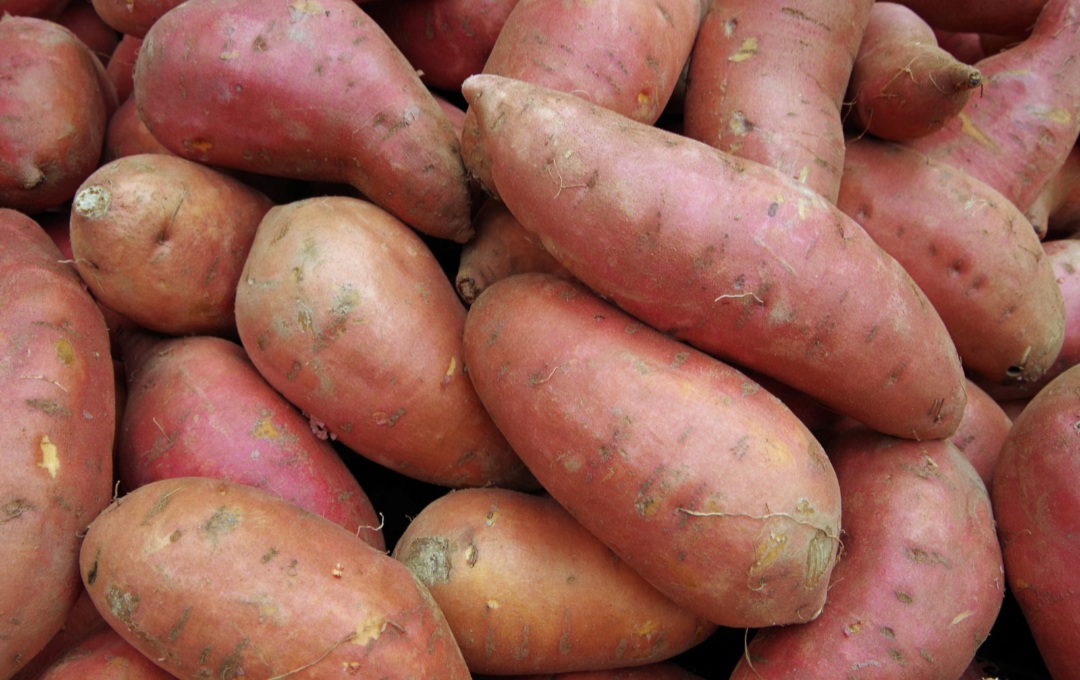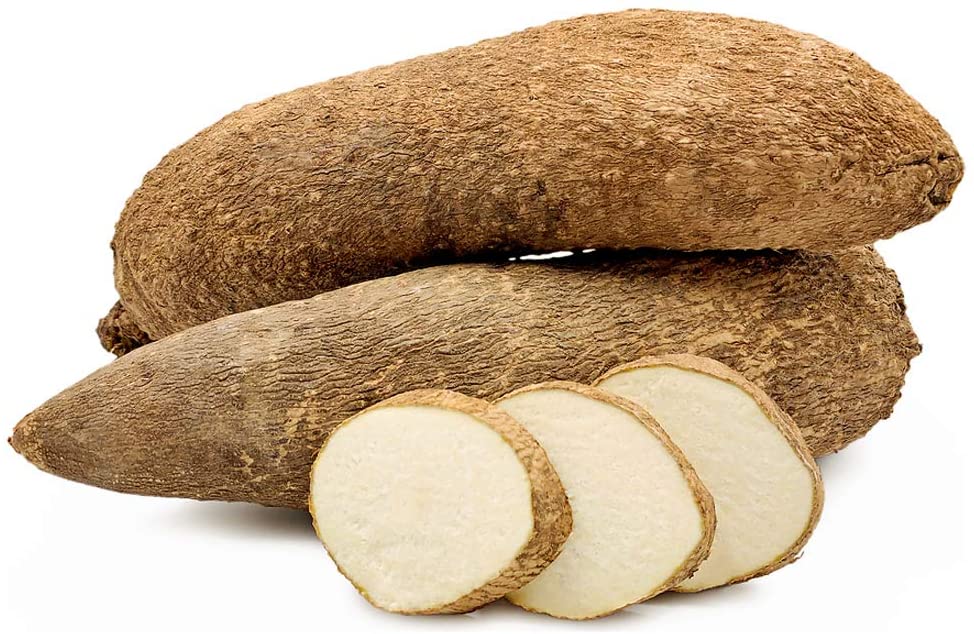Description
Cassava, scientifically known as Manihot esculenta, is a woody shrub cultivated for its starchy, tuberous roots. It's a staple food in many tropical and subtropical regions, providing carbohydrates for over 800 million people worldwide. Cassava is known for its drought tolerance and ability to grow in marginal soils, making it a valuable crop in developing countries. Nutritional Value: A good source of carbohydrates, and also contains some vitamins (C, B) and minerals. Toxicity: Raw cassava contains cyanogenic glycosides, which can release cyanide. Proper processing (leaching, drying, or cooking) is essential to remove these toxins before consumption. Uses: Staple food, source of starch for food and industrial purposes, animal feed, and potentially for biofuel. Processing: Proper processing is essential due to the presence of cyanogenic glycosides. Deficiencies: While a good source of carbohydrates, cassava is relatively low in protein, vitamins, and minerals, which can lead to malnutrition if it's the sole or primary food source. Environmental Impact: Cassava is a relatively sustainable crop, especially in marginal areas.
labels.customer_rating
0.0
Based On 0 Reviews
Customer Review
No reviews
Still, have a question?
If you need help with orders, agro-products, or services, provide more details so I can guide you better!

AfeezoMart
Hey there 👋 Need help? I'm here for you, so just give me a call.

